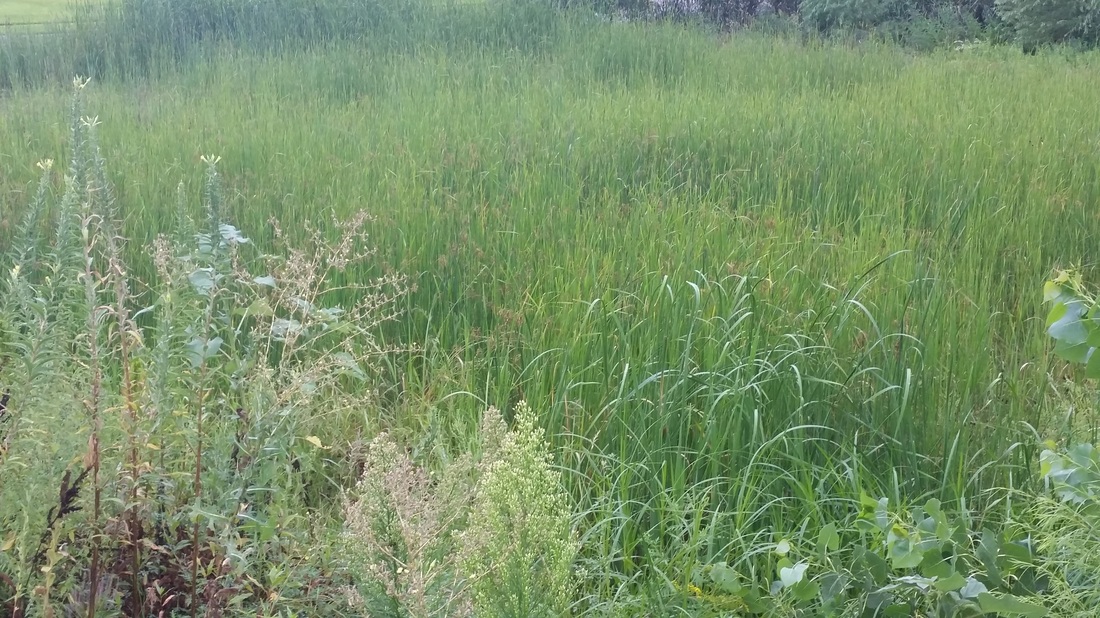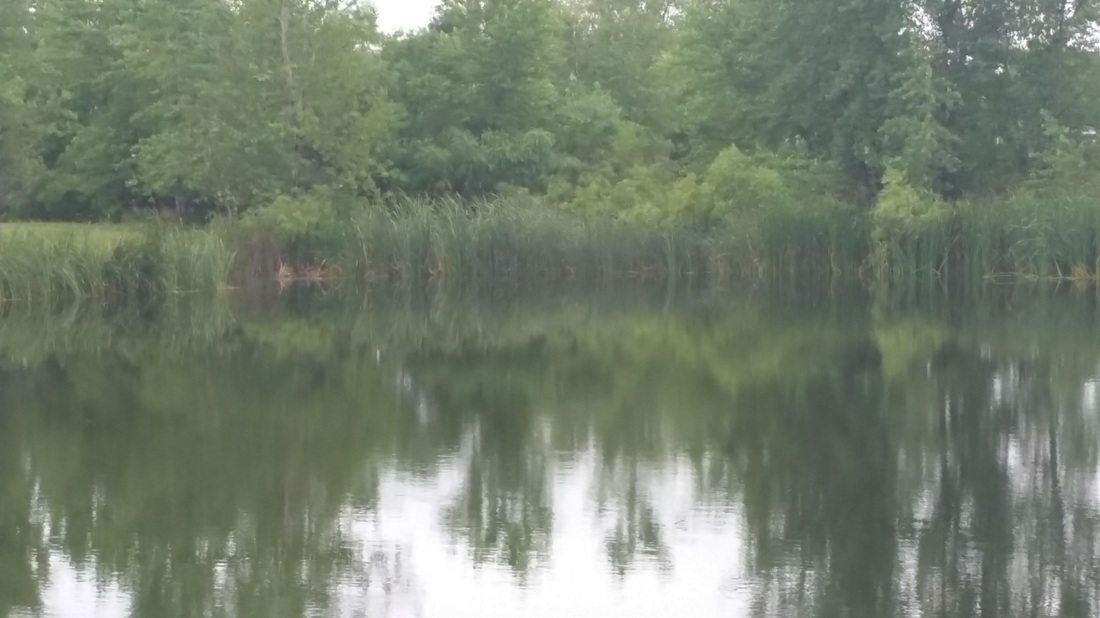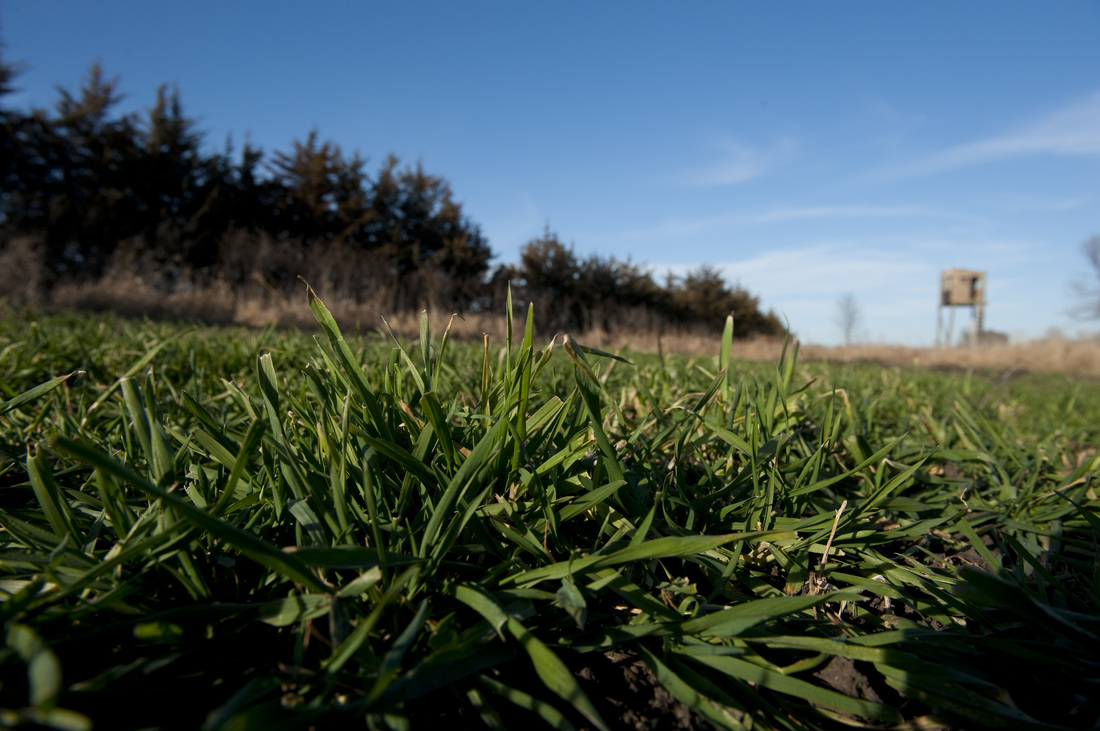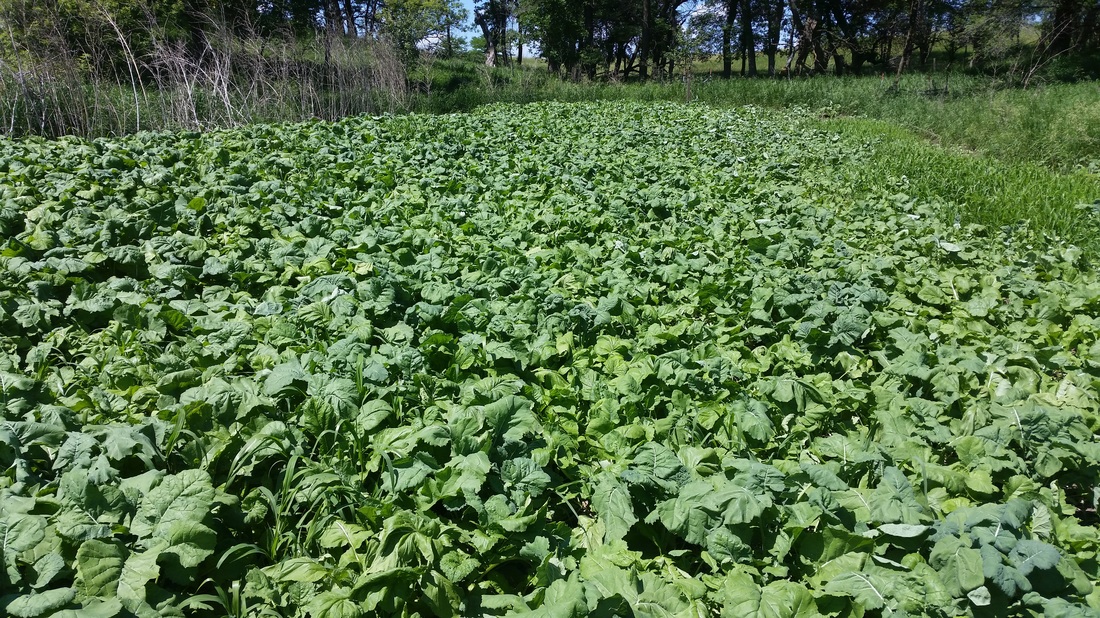In both of these situtations water can quickly come into your pond during heavy rains. With it comes the pollutants it will pick up on its way. This biggest ones being excess nutrients. Nitrates and phosphorus would be my biggest worries. Yes these are needed for a healthy pond but in small amounts. The same as your lawn or ag fields. Too much of a good thing becomes a bad deal.
Excess nutirents in your pond will lead to unsightly and potentially harmful algael blooms and excess subemerged and emergent vegetation growth. This will make it diffucult for you to use your pond as you wish. Fish will become very difficult during summer months and even swimming will not be enjoyable. This excess growth and algael blooms can also lead to problems in the fishery.
It will get harder for predatory fish to find food causing them to be underweight. However the biggest concern would be with fish kills. A summer kill could happen during periods of hot still days when oxygen levels are already low but due to excessive plant growth when nightfall comes and plants can't photosynthesize they will begin to take oxygen back out of the water for respiration purposes. This could lead to fish kills overnight.
All the excess buildup of organic matter could lead to winter fish kills as well. Over time all of this can make your pond become aesthetically unappealing both in sight and smell. For nobody wants to see there pond completely grown over but runoff can also bring trash, plastic bottles, aluminum can and food wrappers to name a few, with it. Siltation is another concern in these situtations. Runoff will bring top soil from ag fields, lawns and debris from city streets to your ponds bottom.
Having a small pond or wetland area installed upstream can help prevent or slow many of these issues. It only needs to be a few feet deep and in many instances less than an acre in size. Have an outlet pipe for overflow to escape. Allow it to grow into native wetland vegetation like rushes, reeds and cattails. When runoff comes into these structures it will catch much of the trash and sediment coming with it.
The vegetation will help to take the excess nutrients out of the water before it gets to your pond. This pond can be overgrown with vegetation as long as it is doing its job. I have seen Nitrate levels be nearly 10 times higher in these filtration ponds as they are in someones recreational pond. Water will either flow though the outflow pipe to enter your pond or it will enter through the groundwater.
These small filtration ponds will not only help out the health of your pond but also add to its enjoyment. The added native vegetation and flower plants and bring added aesthetic value. They will also attract breeding waterfowl and songbirds for you to observe. Not to mention the sounds that are added for you to enjoy as you sit on your dock, suspended over your clean pond with a line in the water and family all around enjoying it to the fullest!
Brett Kleinschmit





 RSS Feed
RSS Feed
